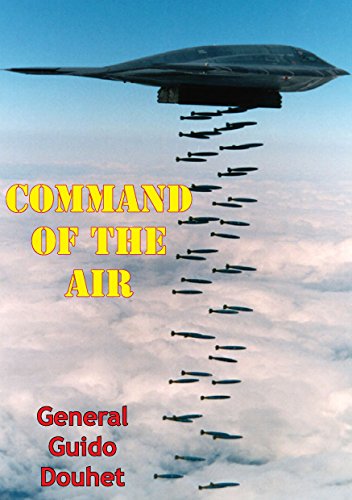Reinterpreting Douhet: Cyberwar in Perspective
In the pantheon of air power theorists, Guilio Douhet holds centre stage. At its inception, Guilio Douhet famously espoused the inherently offensive nature of air power: ‘the airplane is the offensive weapon par excellence’1
He argued that the character of aeroplanes—their speed and mobility—and the vastness of their domain would prevent the defence from ever stopping a determined bomber offensive. This article reinterprets Douhet’s thesis from a cyber warfare perspective and argues that the ubiquity, speed, and reach of cyberwarfare, combined with the vastness of cyberspace, accentuates its offensive power and undermines its defensive potential.
Douhet understood the advantage of the offensive in warfare. An attacker has the luxury of planning, massing, and synchronising forces at a point in time and space unknown to the defender, allowing the attacker to gain and likely retain the initiative.
Defenders would be relatively unprepared and incapable of defending all possible avenues of approach, reactively shifting defensive forces from one defended location to another, incapable of generating the mass of forces or speed of movement to defend anywhere adequately.
Ultimately, the defender will be compelled to accept whatever terms the attacker sees fit to dictate.
The emergence of cyber warfare eclipses the offensive potential of the air weapon. Cyber networks are ubiquitous; when this quality is combined with the speed, reach, and precision of the cyber weapon, the attacker can target any point on the defender’s networks, while the defender will lack the preparation, force capacity, and agility to provide for an adequate defence across the network.
In an approach reminiscent of the Combined Bomber Offensive, cyber weapons aimed at civilian telecommunication nodes will be capable of leveraging interconnected networks to generate effects against military facilities.
Civilian network administrators and defensive cyber teams are unlikely to have the expertise or capacity to defend against state-sponsored cyber-attacks, and important civilian infrastructure will sit outside the guardianship of military or government defensive cyber teams.
The speed of the cyber weapon leaves no time for the defender to parry the blow or to call up reinforcements in aid of defence. It may take several weeks before a state-sponsored cyber-attack is uncovered, let alone investigated, and this initial event will be quickly outpaced during military conflict by a series of sequential non-kinetic and kinetic attacks.
If defensive cyber teams are not already prepositioned and alerted to a threat, they are unlikely to be capable of providing a defence nor will they have the mobility to reach the target network before the enemy achieving their objectives. The attacker, with all the power of the initiative, will avoid defensive strongpoints and strike where the enemy is weakest, just as the Germans bypassed the Maginot line during the Second World War.
All this defensive capability will amount to nothing but a useless dispersion of enormous quantities of national resources wasted on the notion of preventing not an actual attack, but a possible one. The cyber weapon is ideally suited to offensive operations. To paraphrase British politician Stanley Baldwin who spoke of the fear of the bomber in the 1930s: The cyber weapon will always get through.
As the Australian Defence Force is confronted by the current upheaval in the character of war and seeks to implement the cyber capability envisioned within the 2016 Defence White Paper, the inherent offensive character of cyber warfare must be understood.
The development of defensive cyber capabilities and their necessary dispersal are at odds with the inherent nature of the cyber weapon and act contrary to its inherent economy of effort. Such actions have been caused by the disorientation produced by the suddenness of the cyber weapon’s emergence.
This disorientation has the potential to lead to a flawed concept of employment. Concepts for operation in new domains need to be continuously challenged to ensure the best fit. It is essential that we now challenge and contest the precepts for cyber warfare, in the same manner with which Douhet did
Douglas Holmshaw is a serving Australian Defence Force officer with eight years of experience in the cyber career field and an interest in cyber strategy.
This article was published by Central Blue on April 12, 2020.

